Establishing a solid foundation of teamwork among students allows them to collaboratively work together and deepen their capacity to face challenge.
The first few days on an expedition or in a classroom make all the difference in shaping a group. It’s the time when we get a sense of what will be asked of us, as well as how we’ll be supported.
Outward Bound expeditions are structured around value-forming experiences—situations that call on us to rise and respond in ways we may not have expected we could, shaping our sense of who we are individually and collectively. Instructors work hard to help students lay a foundation of teamwork early on in a course, and throughout a course, so that when students face challenges down the road, they’re set up to support one another and find success.
Building a Foundation of Teamwork
One way to think about building a foundation of teamwork is through a cycle of dunking and drying. No, this isn’t about laundry! Dunking experiences push a group outside of their comfort zone. This might happen in obvious, external ways like summiting a peak, running a river rapid or navigating off-trail using a compass. Dunking into new depths might also happen socially and emotionally—sharing a vulnerable story, asking for help or sticking it out in a tough conversation to resolve a conflict.
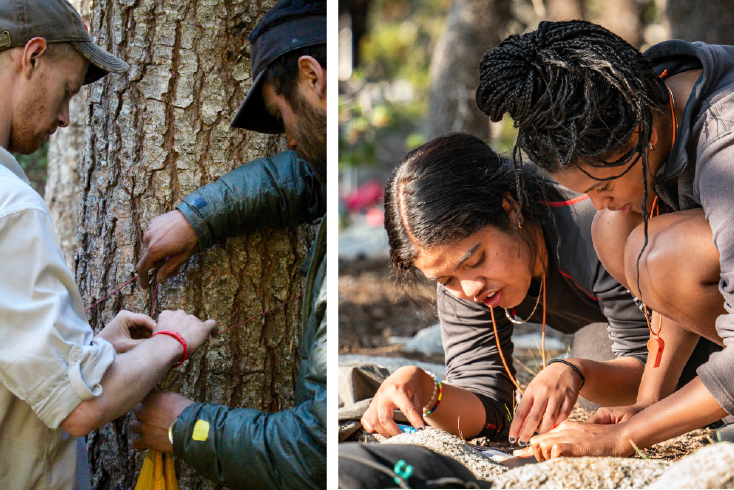
Photos by Alice Burgess (L) and Dalton Johnson (R)
For a team to learn from these experiences of ‘dunking,’ Outward Bound Instructors aim to intersperse them with times of ‘drying.’ The times when intensity winds down and everybody has a chance to relax, laugh, share jokes and a snack or take a nap. For a team to show up for each other in circumstances with new stressors, it’s important that the team also knows that there will be spaces on the other side to be mellow, calm and goofy.
The Progression of Teamwork
Foundations of teamwork can be laid within the first few days in any new group setting. By strategically including both experiences of ‘dunking’ and ‘drying,’ a team’s capacity to work together deepens. They will be able to confront increasingly challenging experiences together with success. That means that a challenging experience of ‘dunking’ on the first day of a group working together may eventually become a comfortable routine activity.
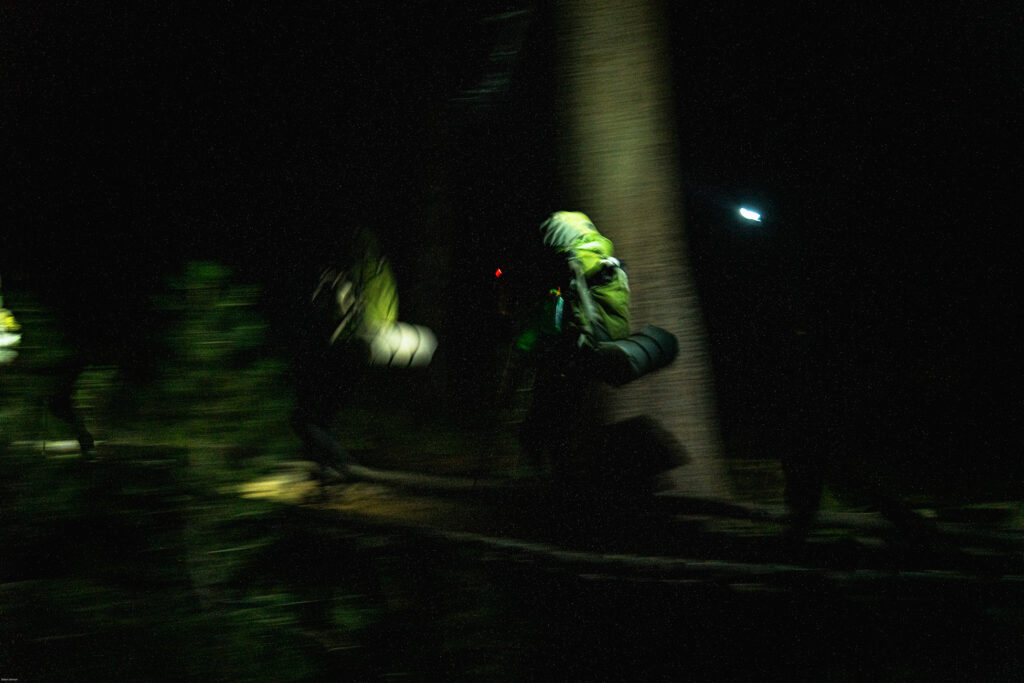
Photo by Dalton Johnson
As groups start to form on an Outward Bound course, ‘dunking’ might look like setting up tents and sleeping outdoors for the first time or walking to a campsite through the woods in the dark. Including novel and challenging experiences that meet a group where they’re at from the start lets group members become accustomed to confronting demanding experiences together.
Initial Experiences for Teamwork Formation on an Expedition
An initial experience of ‘dunking’ might plunge a team into working together through a group initiative. Or it might emerge from the real needs of a circumstance. For example, at the start of any Outward Bound course, all food bags and group gear must be packed for the expedition. This is a great opportunity for Instructors to ask the group to independently distribute the food and gear among members, often eliciting discussions of equality versus equity and requiring a group to notice the leadership styles that emerge more readily.
Other Instructors might decide to ‘bushwhack’ off-trail to arrive at the campsite for the first time. In both circumstances, Instructors provide just enough context and knowledge for a team to interact in new ways while finding success in the initial ‘dunk.’
‘Dunking’ in a Classroom Setting
In a classroom setting, a ‘dunking’ challenge based on present needs might look like organizing an aspect of the physical or virtual space or beginning with a group project activity. ‘Dunking’ in a social-emotional context might look like asking a team a challenging go-around question, or using a think-pair-share format for a group to share a response that might feel like a stretch in a full-group setting.
The Need for ‘Drying’ Experiences
For a team to continue to grow together and confront increasing challenges, there must also be times for ‘drying’ off. This time is particularly important in the first few days on a course or in the classroom, as it allows team members to know that there will be a supportive space for regrouping their energies.
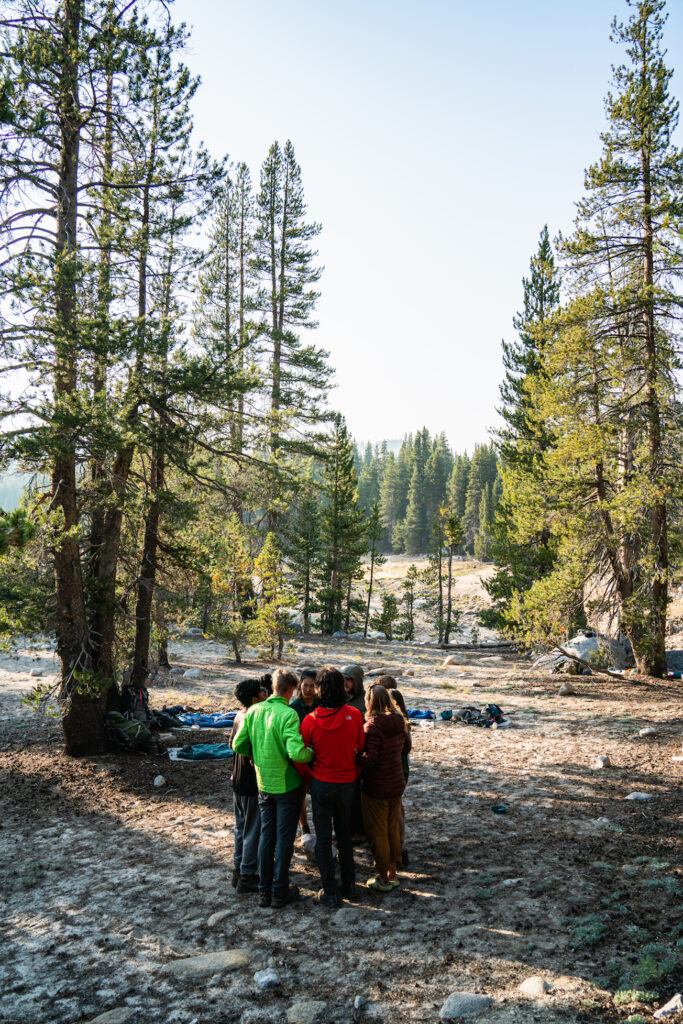
Photo by Dalton Johnson Media
Establishing Routines
Crucial ‘drying’ experiences in creating a foundation of teamwork come through the establishment of routines. On an Outward Bound course, a team might move through wildly varying terrains and climates. Yet, there will be several times of gathering that anchor the day. These might include a ‘Chow circle’ before eating dinner—a time to share a quote, appreciations or simply a moment of togetherness. Oftentimes, holding an evening meeting is another form of routine—a time to debrief the day and reflect on what is coming up next. Other anchoring routines might include a morning navigation briefing or a self-care session on arriving at camp. These routines create times of relief and reliability that form a foundation the team can rely on.
The Importance of Alone Time and Rest
Taking time for rest and reflection away from the group setting can be equally important in revitalizing members to expand their capacity to work together. This solo ‘drying’ time might look like short periods of journaling or a solitary ‘sit spot.’ On longer Outward Bound courses, it can look like an extended Solo experience for solitary rest away from the group, in the middle of an expedition. At the start of a course, team members often have more capacity to intensely live and work together when they know that a time of rest is planned.
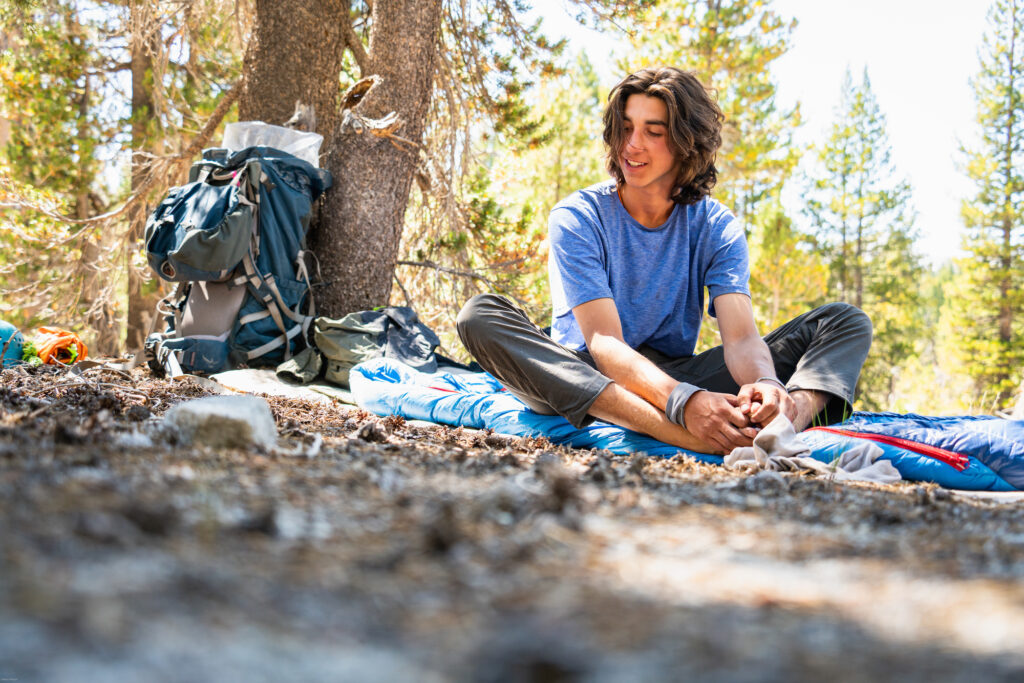
Photo by Dalton Johnson Media
Intention-Setting
At the beginning of a team experience, an Instructor can intentionally serve as a bridge between ‘dunking’ and ‘drying,’ allowing team members to learn from past challenges and set goals for what’s coming up. This bridging can happen on a group level or an individual level.
Individual Level
Through 1:1 meetings between Instructors and students, crew members can begin to set goals for how they want to grow within the team and build a plan for success within those goals. Setting individual goals at the start of a team experience can be formative in creating a tone that acknowledges team formation as dependent on individuals’ choices and actions.
Group Level
Intention-setting can also happen on a group level by establishing shared agreements and values. A group contract can be an excellent tool for a team to create after the first few days of working together. They can return to it throughout the course to revise as they reflect on shared experiences and outcomes. The contract can set intentions for how the team hopes to work together and specify how they plan to hold each other accountable.
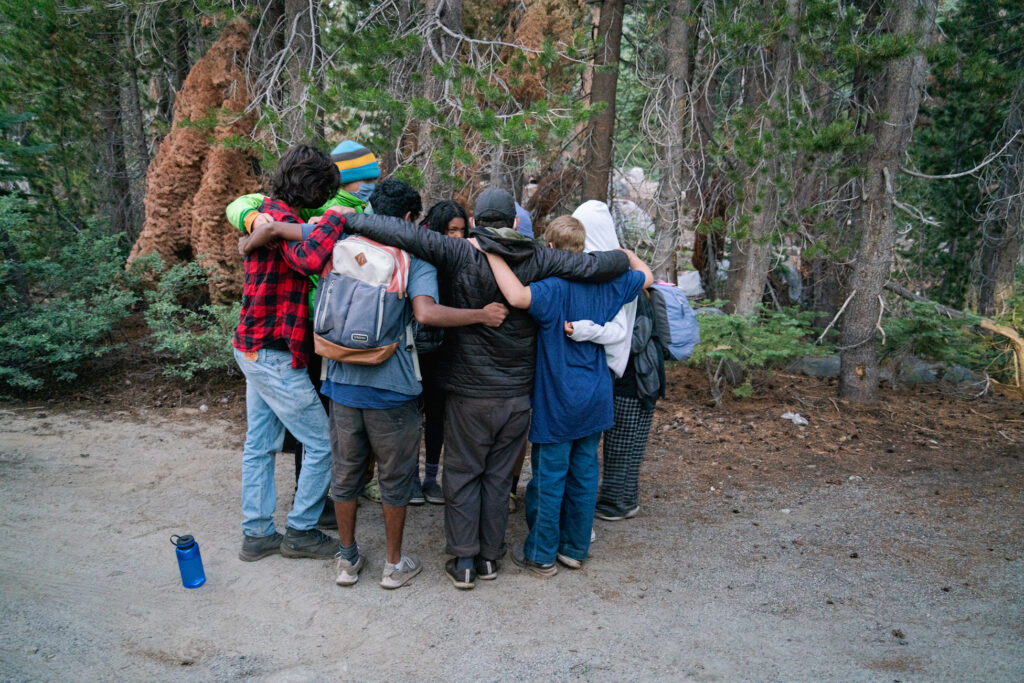
Photo by Dalton Johnson Media
Foundations That Set Students up to Grow and Succeed
The first few days on a course or in the classroom must prepare a team to know that they’ll be pushed in ways they may not have experienced, but at the same time, that they will find support and care in ways they may also not have experienced. The model of ‘dunking’ and ‘drying’ can apply to a variety of team circumstances— a wilderness expedition, a class at school, a parenting rhythm, a group of work colleagues, or any kind of friendship or partnership. When solid foundations are laid for working collaboratively, team members deepen their capacity to be ‘dunked’ into confronting the unexpected.
Inspiring Bold Futures
About the Author
Nora Spicer has instructed backpacking and canoeing courses at the Hurricane Island Outward Bound School since 2014. She has an MA in Environmental History from Harvard University and teaches Place-based US History (honoraspicer.com).




